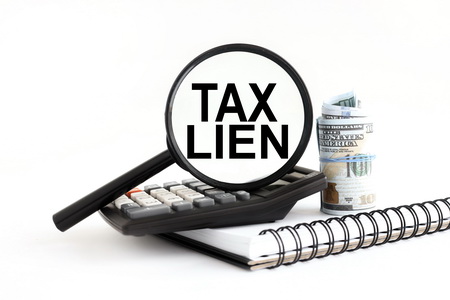All Categories
Featured
Table of Contents
In most cases, you will have to outbid other capitalists by supplying to pay a greater premium (investing in tax lien certificates for beginners). This premium is usually less than the actual quantity of taxes owed, yet it's up to the capitalist to choose if the threat deserves the collection incentive. In many areas, property tax obligations are around one percent of the property's worth

Tax lien capitalists make their cash on the rate of interest settlements they gather when the property owner pays back the taxes they owe. In some places, these rates of interest are as high as 18 percent, which is much more than the average bank card interest price. Residential or commercial property owners can pay what they owe at one time, or they can take place a settlement strategy ranging from one to three years.
How Do You Invest In Tax Liens
In the above instance, a person with an impressive tax obligation financial debt of $4k (two years of back taxes) would be offering a tax lien holder with possibly as much as $720 in interest payments, collaborating with the 18 percent rate of interest we pointed out previously. Among the best benefits to tax obligation lien financiers is the possible to get a new residential or commercial property for their property portfolio, without having to pay its market worth.

It's a win-win situation for the tax obligation lien capitalist. There are some disadvantages to tax lien investing.
As soon as the lien is paid, the capitalist has to go on and seek a brand-new financial investment. Certainly, if the homeowner is still in default, the lien holder will certainly get the residential property, which can end up being a recurring source of earnings. Someone that purchases a tax obligation lien may find themselves entangled with other liens on the property, specifically if they wind up claiming the building in the event that the debt goes overdue.
This could lead to great deals of lawful battles, which is why it is very important to function with legal representatives and tax obligation experts that understand points like act vs title. and can aid with doing due diligence on a building. The regulations around tax obligation lien investing (and associated issueslike foreclosing on renters) are not consistent across states that use financiers the capability to participate in a tax obligation lien sale.
Considered that tax liens are usually cost public auction, competing prospective buyers will bid up the premium and bid down the rate of interest that can be collected on the unpaid tax obligations. The champion of the auction will be the investor that is paying the highest premium and getting the most affordable rate of interest in return.
How To Start Tax Lien Investing
In this capillary, tax obligation lien investing is a little much more sport-like than conventional passive methods of gaining revenue. The first point you'll want to do is get aware of the area you're considering in terms of the property market. Bear in mind that one advantage of becoming a lienholder is gathering the building if the financial debt goes unsettled, so you will require to know where that residential or commercial property is.
As soon as you have actually found out these information out, you require to contact your neighborhood county treasurer's workplace to locate out when and where the next tax lien public auction is being held. These auctions are frequently held in individual, but in today's day and age, a lot of have actually transitioned to on-line locations.

A lot of local documents publish these checklists annually or semiannually. This can provide you a great concept about upcoming chances. Keep in mind that residential or commercial property taxes are normally one percent of the residential or commercial property worth, however unpaid tax obligations gathering over a number of years could be an extra substantial amount. You can utilize your very own cash books or check out alternatives like property crowdfunding to acquire the resources you need.
Tax Lien Investing Scams
it has actually the included perk of acquiring the property if the financial debt continues to be unsettled. While it can be a profitable opportunity for the financier, it does call for some strategic maneuvering. Tenants and homeowner do have legal protections that make tax obligation lien spending a more involved procedure than just bidding to acquire a financial obligation and waiting to collect the settlement.
Buying tax obligation liens involves acquiring a lawful claim on a residential property as a result of unsettled real estate tax. This method of investing has acquired appeal due to its potential for high returns with relatively low first resources. Tax obligation liens are typically cost auctions, and the procedure can differ depending on the location.

Investors seek out tax obligation liens for several factors: 1. Low Preliminary Investment: Tax lien investing commonly requires a little amount of money to begin, making it accessible to a wide array of investors.
Secrets Of Tax Lien Investing
3. Property Procurement: If the homeowner falls short to pay the past due taxes and rate of interest within the redemption duration, the investor may deserve to confiscate and obtain the building. Create an account online, or call us for further information. When capitalists buy a tax lien, they pay the past due taxes on a home and obtain a tax lien certification.
There are 2 prospective end results: 1. Settlement by the Residential Or Commercial Property Owner: The property owner pays off the overdue taxes plus passion within a specified period, and the investor obtains the repayment with passion. This is one of the most common end result. 2. Repossession: If the homeowner does not pay off the tax obligations within the redemption period, the capitalist can start repossession procedures to acquire the home.
The self-directed IRA purchases the lien certificate and pays associated costs. Intend the homeowner repays the lien, and the profits go back to the IRA. If the building is confiscated and marketed, the sale earnings also return to the individual retirement account, potentially expanding the retired life savings. Tax Lien: The government offers a lien on the residential or commercial property as a result of unpaid tax obligations.
What Is Tax Lien Real Estate Investing
Tax obligation Deed: The federal government offers the real deed to the home at public auction. The winning prospective buyer obtains ownership of the residential property instantly. Some states make use of a hybrid approach, where a lien might lead to an action sale otherwise settled. According to the National Tax Lien Organization (NTLA), 36 states and 2,500 jurisdictions within the US permit the sale of tax obligation liens, while just 31 states enable tax deed sales.
Table of Contents
Latest Posts
Tax Liens Homes For Sale
Government Property Tax Auctions
Tax Overage List
More
Latest Posts
Tax Liens Homes For Sale
Government Property Tax Auctions
Tax Overage List